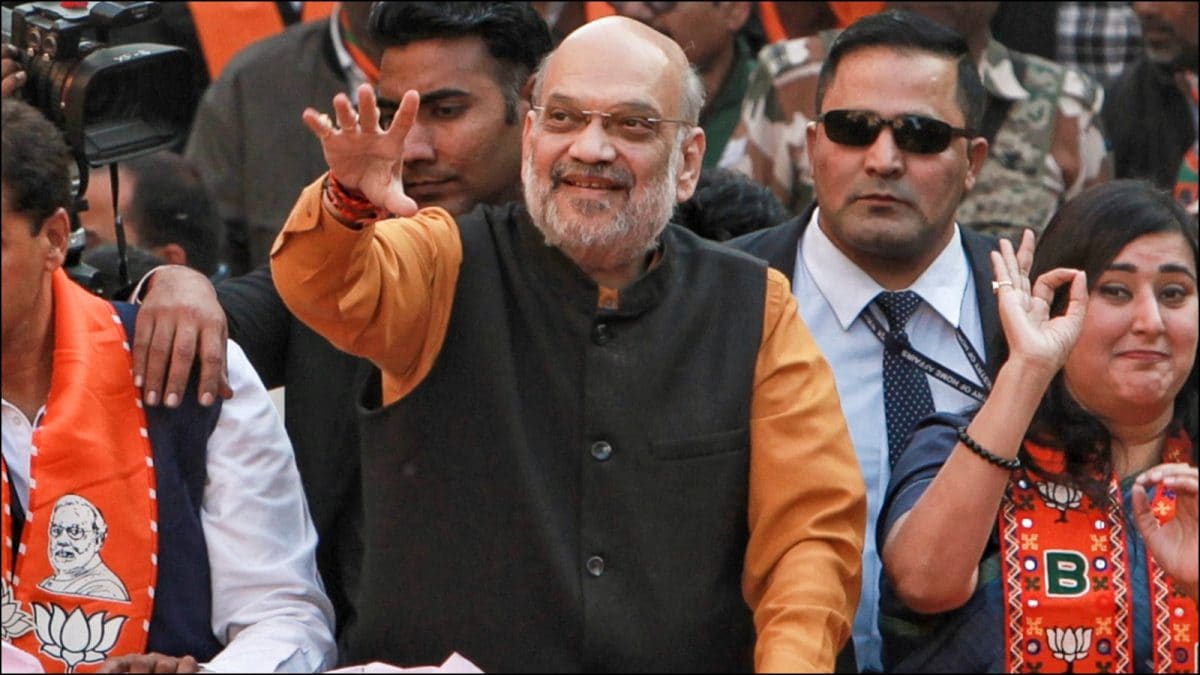 |
|
The upcoming Delhi Assembly elections are shaping up to be a fierce battle between the ruling Aam Aadmi Party (AAP) and the Bharatiya Janata Party (BJP). Union Home Minister Amit Shah, a key figure in the BJP's campaign, has launched a scathing attack on AAP leader and former Deputy Chief Minister Manish Sisodia, accusing him of neglecting his duties and prioritizing the opening of liquor shops during his tenure. Shah's remarks, delivered during a roadshow and election rally, represent a significant escalation in the BJP's campaign rhetoric, aiming to discredit Sisodia and, by extension, the entire AAP government. The timing of this attack, close to the election date, suggests a deliberate strategy to influence voter perception in the crucial final days of campaigning.
Shah's accusations center around Sisodia's alleged lack of accomplishments during his 10 years in office. He specifically criticizes Sisodia for focusing primarily on establishing liquor shops near schools and temples, an issue that has resonated with some segments of the population and which the BJP is using to fuel public discontent. This is a calculated move, leveraging a potentially controversial issue to paint the AAP government as neglecting the needs of its citizens. The BJP aims to present an image of an efficient and effective alternative to the ruling AAP. By casting Sisodia as the embodiment of corruption and neglect, Shah is hoping to damage AAP’s credibility and win over voters who may be disillusioned with the party’s performance.
Furthermore, Shah's attacks extend beyond Sisodia, targeting former Delhi Chief Minister Arvind Kejriwal as well. He describes Kejriwal and Sisodia as a corrupt duo (“bade miyan and chote myian”), directly linking them to the ongoing liquor scam. This tactic seeks to broaden the scope of the criticism, associating the entire AAP leadership with alleged malfeasance. The implication is that the entire party is implicated in a culture of corruption and that voters should reject them outright in favour of the BJP’s promise of clean governance. This strategy aligns with the BJP’s broader narrative of presenting itself as a party dedicated to fighting corruption, a message that has resonated with many voters in previous elections.
The BJP's strategy also includes highlighting the alleged failures of the AAP government in addressing key infrastructural issues. Shah points to the poor condition of the Yamuna River and the prevalence of garbage and toxic water as evidence of the AAP's incompetence. By contrasting Delhi's perceived shortcomings under AAP rule with the purported successes of BJP-governed states, Shah attempts to present a stark choice to the voters: continued stagnation under AAP or progress under BJP rule. This comparison is designed to sway voters who prioritize better infrastructure and improved living conditions.
The upcoming Delhi elections are crucial for both parties. For AAP, it’s a matter of retaining power and demonstrating their continued popularity in the capital. For the BJP, it’s an opportunity to dislodge a powerful regional rival and consolidate its position in the national political landscape. The intense nature of the campaign, marked by personal attacks and accusations, underscores the high stakes involved in this crucial electoral contest. The results, to be announced on February 8th, will have significant implications for the political dynamics not just of Delhi but of the broader national scene.
Source: Amit Shah’s Fresh Dig At AAP’s Manish Sisodia Before Delhi Polls: ‘He Only Opened Liquor Shops’
